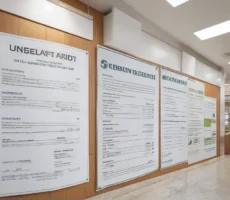Pursuing a PhD in business is a significant commitment that prompts both excitement and concern. It’s a journey marked by rigorous research, mentorship, and the quest for knowledge in a complex field.
Generally, earning a PhD in business can take anywhere from 4 to 6 years, depending on the program structure, your background, and the specific focus of your research. Curiously, this timeline can vary significantly based on personal factors and institutional requirements, which makes it an intriguing journey worth exploring in more detail.

What is the typical duration of a PhD program in business?
Completing a PhD in business usually takes around 4 to 6 years. This timeframe consists of various phases, each with its own milestones.
Initially, students dive into coursework, which typically spans 2 to 3 years. You can expect to tackle core subjects in research methods, theories of management, and specialized topics that align with your interests. These courses are critical—they not only build your foundational knowledge but also help you identify your dissertation area.
Once coursework is completed, you transition into the comprehensive exams phase. This stage can take several months as you prepare and sit for these challenging assessments. Following that, it’s time to form your dissertation proposal. This usually requires an additional 6 months to a year to fine-tune your research questions and methodology.
Finally, the heart of the PhD process—the dissertation—can take 1 to 2 years to complete, given the nature of research and writing involved. Your timeline might vary based on your research topic’s complexity and your ability to navigate through the various stages efficiently.
How do program types affect the timeline?
Different program structures can significantly influence how long it’ll take you to earn your PhD in business. Here’s a breakdown of how these options might look:
Full-Time Programs : Generally, these are the most straightforward. Committed students typically finish in about 4 to 5 years. The full immersion in studies means you’ll complete coursework and research rapidly, but it’s a huge commitment.
Part-Time Programs : If you’re holding down a job or have other responsibilities, part-time options are more flexible. However, it often stretches completion to 6 to 8 years, as the pacing is slower. Honestly, if you’re juggling a full-time job, this could be the best fit.
Online Programs : Growth in online education offers some interesting flexibility. Similar to part-time programs, you might expect to finish in about 5 to 7 years, depending on your schedule and dedication. The advantage here is flexibility, allowing you to blend studies with life’s demands.
Each option comes with its own unique challenges and benefits. It’s essential to weigh them carefully against your career goals and personal circumstances. An important note: some institutions might offer accelerated options if you already have a master’s degree, which can shave off significant time.
For a detailed comparison of program types, you might find this resource from the American Psychological Association really helpful in exploring various PhD structures.
What role does previous education play?
A master’s degree or significant professional experience can be a game changer when pursuing a PhD in business. If you already hold a relevant master’s degree, you might find the coursework phase of your PhD easier or shorter, because many foundational concepts will already be familiar to you.
Typically, a PhD program spans 4 to 6 years, but those with a master’s degree might complete it in about 3 to 5 years. Having work experience in the business field also plays a vital role. It can provide practical insights and may allow you to bypass certain introductory courses, streamlining your path to candidacy. If you’ve been in managerial roles or have research experience, that can also reduce your time spent on coursework, pushing you closer to that all-important dissertation.
Here’s a quick breakdown: – Master’s degree holders: 3-5 years – Strong professional experience: potentially faster completion – Bachelor’s degree only: usually 4-6 years
Tip : Consider tailoring your research interests during your master’s, as this alignment can greatly benefit the flow of your PhD studies.
How important is dissertation completion?
The dissertation is often seen as the backbone of your PhD journey. This substantial piece of original research not only showcases your expertise but also can significantly influence the overall duration of your program.
Some candidates may wrap up their dissertation in just a year, while others might take several years to finish, depending on the complexity of the research and their own pace. Engaging closely with your advisor and setting clear, achievable milestones will help keep you on track. However, don’t overlook the importance of a well-defined topic; choosing something you genuinely care about will make the process smoother and more fulfilling.
As you tackle the dissertation, here are some factors that affect time to completion: – Research scope: Broader topics require more time – Methodology: Some methods take longer to implement effectively – Advisor’s responsiveness: Supportive mentors can expedite the process – Personal time management: Prioritizing your dissertation among other life or work obligations
By focusing on these aspects, you can streamline the dissertation process and enhance your overall PhD experience. For additional insights on dissertation writing strategies, check out this resource.
What factors might cause delays in a PhD program?
Several hurdles can slow down progress in a PhD in business. Here’s a closer look at some common culprits:
Research Challenges : Tackling complex research questions can hit roadblocks. Sometimes, initial findings lead to unanticipated complications, requiring fresh angles or methodologies.
Personal Commitments : Life happens! Whether it’s family obligations, health issues, or shifts in personal circumstances, these can impact the time commitment you’re able to dedicate to your studies.
Funding Issues : If funding runs low or you rely on grants that don’t pan out, it can throw a wrench in your timeline. Securing necessary resources is crucial to keep your research on track.
Advisor Dynamics : A good advisor can be a guiding light, but a mismatch can lead to miscommunication and delays. Ensure you have a mentor aligned with your goals.
Course Load : Some PhD programs require a hefty course load. Balancing coursework with research demands can extend your timeline, especially if you’re juggling demands from multiple classes.
Being aware of these factors can help you prepare better for the road ahead.
How do research and specializations affect duration?
The impact of your research topic and specialization can significantly shape how long it takes to earn your PhD. Niche fields might take longer simply due to the depth of study involved. When you dive into specialized research, you may find yourself sifting through extensive literature, conducting richer, more complex analyses, and perhaps even pioneering new theories or methodologies.
On the flip side, selecting a popular or well-trodden topic can streamline your process. Since there’s often more existing research, finding relevant sources and framing your argument might be easier and faster. The key is to balance your passion for a subject with the practicality of available research.
Here’s a quick look at how different choices can impact duration:
- Broad Specializations: Can lead to faster completions due to existing frameworks and theories.
- Highly Specialized Topics: Often require more time for data collection and analysis.
- Methodology Choice: Qualitative studies may take longer than quantitative ones due to data collection efforts.
- Collaboration Opportunities: Joining established projects can expedite your process, compared to starting something completely new from scratch.
In picking your niche, consider both your interests and the practical aspects of your timeline.
For more in-depth insights on selecting your research focus, check out this resource from the Graduate School at the University of Wisconsin–Madison: Research Strategies
What does the application process entail?
Gearing up for a PhD in business isn’t just about having strong academic credentials; it’s also about successfully navigating the application process. This is where you set the stage for your academic journey. Most programs will require a combination of transcripts, letters of recommendation, and a statement of purpose.
Your statement of purpose is crucial—it’s your chance to showcase your motivations, research interests, and while you’re at it, a glimpse of your personality. Tailoring this to reflect what the specific program offers can really make you stand out.
Interviews are another vital piece of the puzzle. Depending on the school, you might be asked to interview with faculty members or admissions committees. Being prepared with thoughtful questions about the program can go a long way here.
All these application steps can impact how long the PhD journey will take. A strong application might even get you into more competitive programs that, while they could be longer or require more rigorous commitments, might open doors to better funding or networking opportunities later on.
Are there typical funding options available?
Securing funding can significantly influence the duration of a PhD program. Many institutions offer a variety of options, including:
Research Assistantships (RA) : You’ll assist faculty with research projects. This is often a good way to secure both funding and valuable hands-on experience.
Teaching Assistantships (TA) : In this role, you help teach undergraduate courses. It’s a great way to refine your teaching skills and also receive a stipend.
Fellowships : These can range from partial to full funding. They’re typically awarded based on academic merit and can lift a large part of the financial burden.
Grants and Scholarships : Many universities have internal grants or partner with organizations that offer scholarships specifically for doctoral candidates.
Exploring these options can help mitigate the financial concerns that might extend your time in the program due to the need for part-time work. Aim to apply for funding as early as possible and ensure your applications are thorough to enhance your chances.
For a comprehensive overview of funding sources for PhD students, check out this resource from the National Science Foundation: NSF Graduate Research Fellowship Program.
Choosing the right funding option can make a significant difference, shortening your path to graduation while easing financial stress.
What are some interesting graduation statistics?
Completing a PhD in business typically takes 4 to 7 years, though this can vary widely. Some students knock it out in as little as 3 years, while others may take over a decade. A significant factor in timing can be the student’s research topic and whether they’re juggling other commitments like work or family.
Graduation rates for business PhD programs are often lower than you’d expect. Around 50% of students may not finish within their expected time frame. This can be attributed to various factors: program demands, personal circumstances, or shifts in career interests.
A few compelling stats you might find interesting:
- About 20% of doctoral students in the U.S. drop out before completing their degree programs.
- 75% of business PhD graduates land in academia, while the rest move into industry or government roles.
- Fields like marketing and finance often see the longest completion times, frequently reflecting the complexity of the research involved.
These numbers reflect not just the journey of earning a PhD, but also the importance of determination and support systems in navigating these challenging waters.
What are potential career paths after earning a PhD?
A PhD in business opens up a world of opportunities. Graduates often find themselves stepping into professorships at universities, which can be incredibly fulfilling if you’re passionate about teaching and research. Alternatively, many choose paths in consulting, lending their expertise to organizations looking for innovative solutions.
Research positions at think tanks or corporate research divisions are also viable options. These roles can provide a more applied focus if you prefer to directly influence business practices and strategies.
You might also consider:
Corporate leadership roles : Many PhD graduates move into high-level management positions where their research skills and analytical thinking stand out.
Policy-making : Graduates with a knack for economics often find their calling in public policy, shaping frameworks that affect businesses and communities alike.
Entrepreneurship : Some take a leap into starting their own businesses, applying their extensive knowledge to innovative ventures.
Timing can be crucial here; aligning the completion of your PhD with your career goals can enhance job opportunities and give you a competitive edge in fast-paced fields. Be proactive in networking throughout your program to cultivate connections that might help you land that ideal job right out of the gate.
For those looking for more detailed statistics and insights into career paths post-PhD, consider visiting AAP’s PhD Career Pathways for a comprehensive overview of career trajectories that align with your academic journey.





